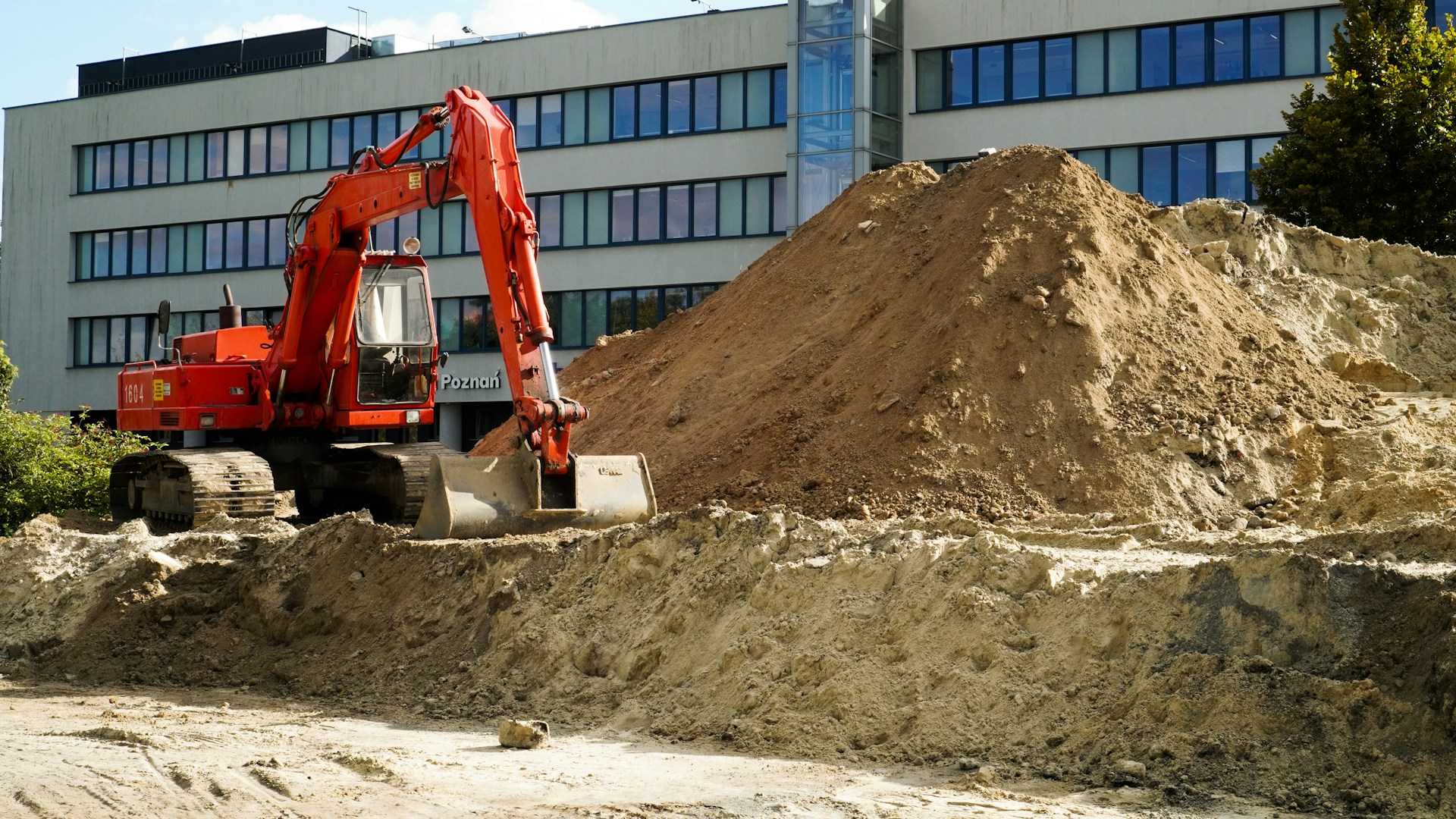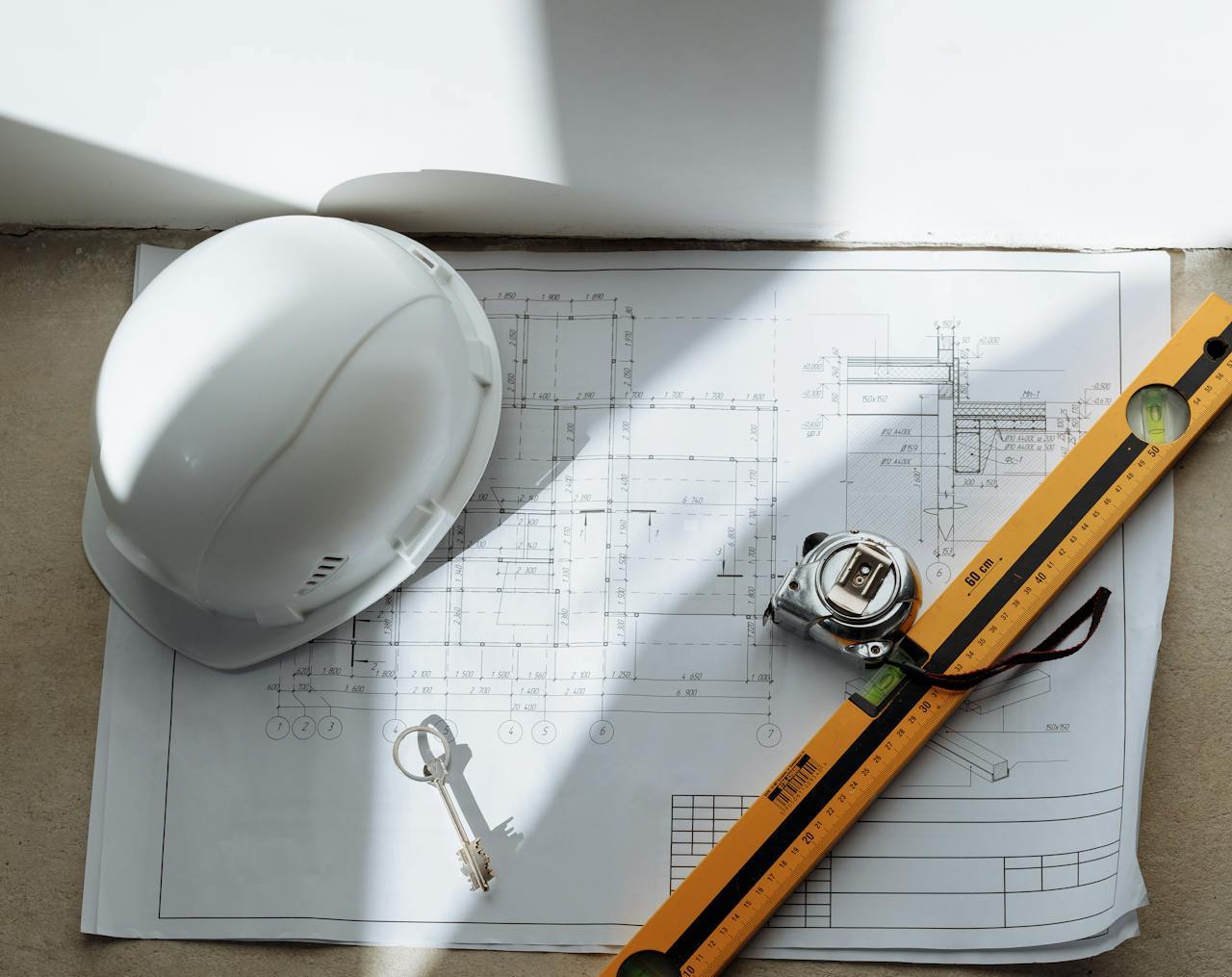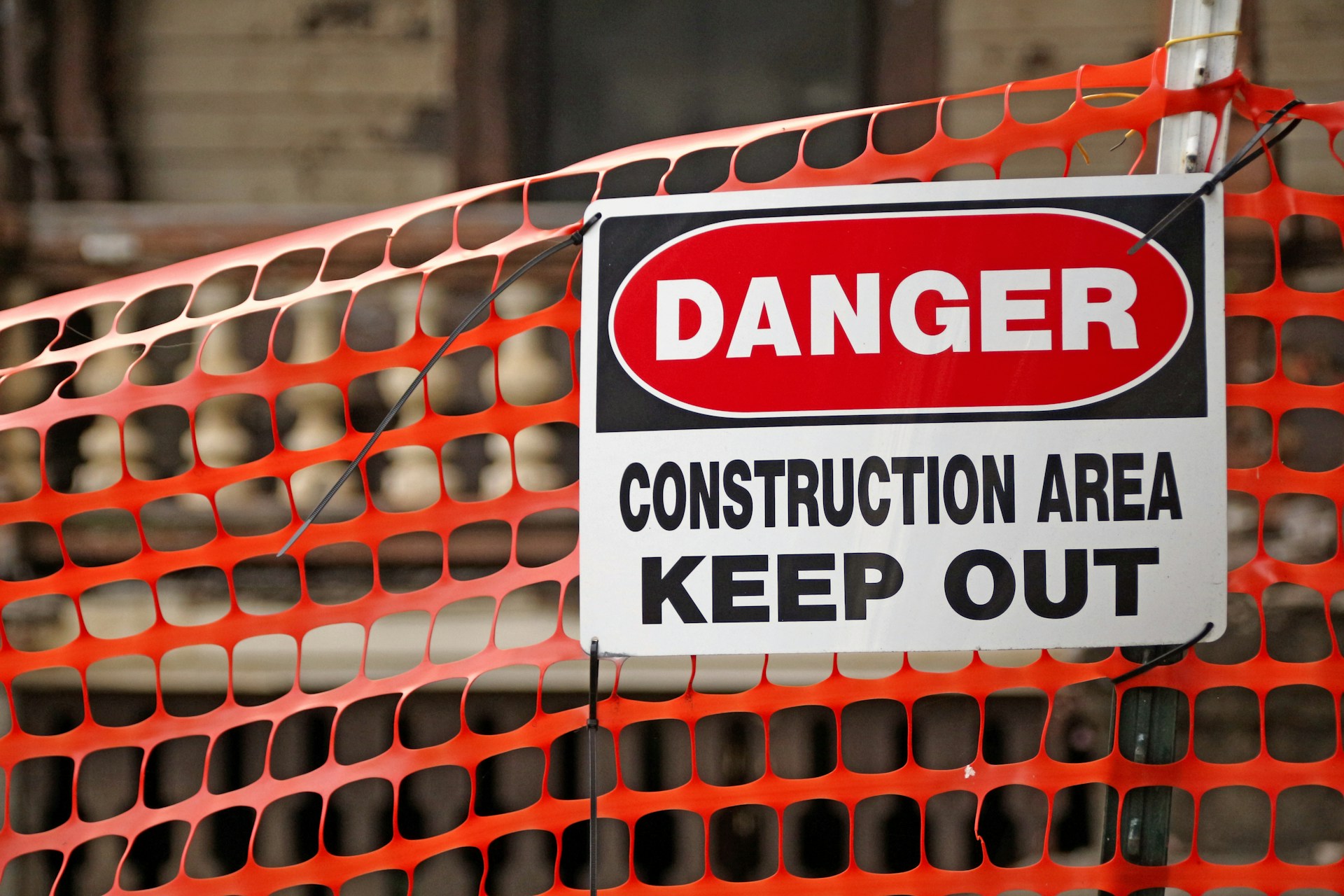In commercial real estate investments, due diligence is more than just a requirement—it’s the cornerstone that can determine the success or failure of a deal. As general contractors involved in the construction and renovation of commercial properties, we at EB3 Construction recognize that thorough due diligence is vital for identifying hidden issues and safeguarding our clients’ interests.
Due diligence in commercial real estate acquisition is a complex process that requires keen attention to detail. It involves examining every aspect of a property, from its physical condition and legal status to its financial performance and potential for the future. For investors and buyers, this comprehensive investigation acts as a shield against costly surprises that could hinder their investment objectives. The risks are significant—missing even minor details during this phase could lead to substantial financial losses or legal problems later on.
At EB3, we have firsthand experience with how rigorous due diligence can uncover crucial information about a property that may not be immediately obvious. For example, during a recent office building renovation project, our team discovered structural issues that were not visible during initial walkthroughs. This finding enabled our client to renegotiate the purchase price, ultimately saving them hundreds of thousands in unforeseen repair costs. These insights highlight why obtaining all necessary documentation and conducting thorough inspections before finalizing a transaction is not merely advisable—it’s essential for making informed investment decisions and effectively managing risk.
What Documents Should Be Included in Your Due Diligence Checklist?

A comprehensive due diligence checklist should include a wide range of documents that provide critical insights into a property’s condition, legal status, and financial performance. We coordinate the collection and review of these key documents to ensure a thorough evaluation:
Property Information
- Current title policy and latest title commitment
- ALTA survey and other property surveys
- Legal property descriptions
- Zoning compliance certificates and documentation
- Engineering plans and as-built drawings
Environmental Documents
- Phase I environmental site assessment
- Phase II environmental reports (if applicable)
- Environmental compliance records
Financial Records
- Three years of income and expense statements
- Current year budget and capital expenditure plans
- Three years of property tax bills
- Two years of utility bills and records
Leases and Contracts
- Complete lease documentation for all tenants
- Rent roll with lease abstracts
- Service contracts (e.g., maintenance, landscaping, security)
- Property management agreements
Property Operations
- Insurance policies and claims history
- Permits and licenses
- Property improvement records and warranties
- Equipment inventory and maintenance logs
We meticulously review each of these document categories to build a comprehensive understanding of the property. Our systematic approach allows us to identify potential issues, assess risks, and determine the overall value and viability of the investment opportunity.
By compiling and analyzing this extensive set of due diligence documents, we provide our clients with the insights needed to make informed decisions. Our team’s expertise in interpreting these materials helps uncover hidden value and mitigate risks throughout the acquisition process.
How Long Does the Commercial Real Estate Due Diligence Process Take?
The due diligence phase in commercial real estate transactions typically begins after the buyer and seller have approved the Purchase and Sale Agreement (PSA). While the exact timeframe can vary based on the complexity of the property and the efficiency of the buyer’s team, due diligence usually lasts between 30 to 90 days.
The PSA often specifies the agreed review period, giving the buyer a set window to thoroughly investigate the property. Many buyers secure what is known as a “free look” period, granting them exclusive rights to purchase the property until the due diligence period ends. This allows buyers to invest time and resources into evaluating the property without competition from other potential purchasers.
Factors that can influence the length of due diligence include:
- Property size and type (e.g., office building vs. industrial complex)
- Number of tenants and lease agreements to review
- Complexity of zoning and land use regulations
- Environmental concerns requiring specialized assessments
- Availability of property records and financial documentation
We’ve found that efficient due diligence management can streamline this process. Using specialized platforms for document sharing, task tracking, and communication provides real-time visibility into the review’s progress. This enhanced transparency allows all stakeholders to identify and address potential bottlenecks quickly.
For buyers looking to accelerate the process without cutting corners, consider these tips:
- Assemble your due diligence team early, including legal counsel, accountants, and property inspectors.
- Request and review available property documentation before the official period begins.
- Prioritize critical items like title reviews and environmental assessments.
- Leverage technology to facilitate collaboration and information sharing among the team.
By approaching due diligence strategically, buyers can often complete their review more efficiently, potentially shortening the timeline while still conducting a thorough evaluation. However, it is crucial not to rush this critical phase, as oversights during due diligence can lead to costly surprises down the road.
What Are the Key Components of Financial and Legal Due Diligence?

Financial and legal due diligence form the backbone of a comprehensive commercial real estate assessment. These critical steps help investors identify potential risks and make informed decisions about a property’s value and liabilities before finalizing a deal.
Financial Due Diligence
When conducting financial due diligence, we examine several key areas:
- Appraisals to determine current market value
- Insurance policies and claims history
- Rent rolls, including security deposits and ancillary tenant expenses
- Lease agreements and abstracts
- Common area maintenance (CAM) charges and recommendations
- Service contracts and potential cancellation penalties
- Demographic research and competitive analysis of the surrounding area
- Year-over-year cash flow analysis
This financial review provides critical insights into the property’s income potential, operating expenses, and overall financial health. We particularly focus on comparing lease financials and selling prices against similar deals to ensure the valuation aligns with market rates.
Legal Due Diligence
On the legal side, our due diligence process includes:
- Title assessments, including ALTA surveys
- Zoning compliance verification
- Lien searches to uncover any existing claims against the property
- Boundary confirmations and encroachment checks
- Review of easements and other covenants, and property use restrictions
- Examination of pending litigation that could affect future ownership
Legal due diligence is crucial for uncovering any restrictions or liabilities that could impact the property’s use or value. We work closely with local authorities to verify zoning compliance and understand any limitations on future development or use changes.
Integrating Financial and Legal Insights
By thoroughly investigating both financial and legal components, we build a comprehensive picture of the property’s potential and risks. This integrated approach allows us to identify red flags early in the process, such as financial discrepancies or undisclosed legal restrictions that could impact future profitability.
Our due diligence process synthesizes these insights to provide a clear assessment of the property’s value proposition and potential liabilities. This enables investors to make informed decisions aligned with their risk tolerance and investment objectives.
| Component | Purpose/Insight |
| Financial Due Diligence | Examines income potential, operating expenses, and financial health. Focuses on appraisals, insurance policies, rent rolls, lease agreements, and cash flow analysis. |
| Legal Due Diligence | Assesses title, zoning compliance, liens, boundary confirmations, easements, and ongoing litigation. Checks for any legal restrictions or liabilities affecting the property. |
While financial and legal due diligence form the core of our assessment process, we also integrate insights from physical inspections, environmental reports, and market analysis to provide a truly comprehensive evaluation. This multi-faceted approach ensures we leave no stone unturned in our quest to provide investors with the clearest possible picture of a potential real estate investment.
How Can You Digitize and Streamline the Due Diligence Process?
As construction projects grow more complex, many general contractors are moving away from traditional spreadsheet-based due diligence in favor of cloud-based digital solutions. These tools can significantly streamline workflows and boost operational efficiency throughout the acquisition process.
Cloud platforms enable our team to maintain real-time visibility into updates across all aspects of due diligence. We utilize standardized, customizable checklists tailored to different project types, ensuring coverage of all critical areas while adapting to unique requirements. Automated communications keep stakeholders informed, and tracked approvals paired with comprehensive task reporting provide clear accountability.
By creating a centralized source of truth, we can collaborate more effectively across departments and with external partners. The software maintains a complete audit trail and preserves institutional knowledge, preventing important details from slipping through the cracks as projects progress. This level of documentation and risk mitigation is crucial for complex construction acquisitions.
We have seen tangible benefits in terms of time savings and risk reduction. For example, automated document requests and reminders have cut our average due diligence timeline by 30%. The ability to quickly generate status reports gives leadership better visibility into potential issues, and having a standardized process reduces the likelihood of overlooking critical steps, even on uniquely challenging projects.
While implementing new technology requires an initial investment, we find that the long-term gains in efficiency and risk management make cloud-based due diligence tools well worth adopting. As projects become more extensive and complex, robust digital systems allow us to take on more work while maintaining rigorous standards.
Conclusion: Ensuring Thorough Due Diligence for Successful Acquisitions

A comprehensive due diligence process is essential for successful commercial real estate acquisitions. By using a thorough checklist that covers property documentation, financial records, legal standing, and environmental assessments, investors can make informed decisions and mitigate risks. Modern digital tools can significantly enhance efficiency and collaboration throughout this critical phase. Whether you’re a first-time buyer or an experienced developer managing multiple acquisitions, a well-structured due diligence approach will help you identify potential issues early and proceed with confidence to closing.
The key to effective commercial due diligence lies in leaving no stone unturned. Carefully reviewing all aspects of a property—from title and zoning to financial performance and physical condition—allows investors to uncover hidden liabilities and accurately assess a property’s true value and potential. While the process can be time-consuming, the insights gained are invaluable for making sound investment decisions and avoiding costly surprises down the road.
Partner with EB3 Construction to turn confident acquisitions into high-quality builds. As your trusted general contractor, we deliver precision, transparency, and results from the ground up.




